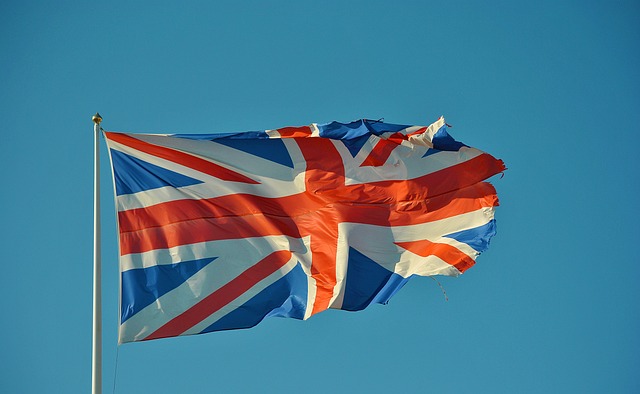
Busan, South Korea – In a move poised to redefine urban living and international cultural exchange, Busan Metropolitan City has announced its ambitious plan to create a distinctive 'British Village' within the Myeongji International New City. This groundbreaking project, formalized through a memorandum of understanding (MOU) signed on May 7th with the British Embassy in Seoul, the Busan-Jinhae Free Economic Zone Authority (BJFEZ Authority), and the Royal Russell School Busan Campus Establishment Promotion Team, envisions a comprehensive enclave featuring British-style educational, residential, cultural, and commercial facilities. The 'British Village' aims to introduce a novel urban model to South Korea, fostering a unique blend of international education and cultural immersion.
The core of this visionary development lies in its synergy with two prestigious British-affiliated schools slated for establishment within Myeongji International New City: Wellington College and Royal Russell School. These institutions, catering to kindergarten and elementary-aged students, will serve as the educational anchors around which the 'British Village' will organically grow. The master plan envisions the development of surrounding residential areas designed with British architectural aesthetics, alongside a vibrant array of cultural amenities such as theaters and libraries. Furthermore, the 'British Village' will incorporate commercial facilities, including supplementary education centers (cram schools), medical clinics, and shopping outlets, all adhering to a consistent British design ethos.
The commitment to a cohesive British theme extends beyond mere functionality. The exterior facades of buildings, interior design elements, and even the streetscapes within the 'British Village' will meticulously emulate British architectural styles. To further enhance the immersive experience, iconic British landmarks, including replicas or artistic interpretations of the Tower of London, Tower Bridge, and the Elizabeth Tower housing Big Ben, are planned for installation throughout the development. This deliberate integration of recognizable British symbols aims to create an environment that evokes the charm and character of a traditional British town.
The Busan Metropolitan City government has clarified that the 'British Village' project will be primarily funded through the attraction of private capital, signaling a strategic approach to leverage investment and expertise from the private sector. While the MOU provides a framework for collaboration, the precise scale of the development, detailed project specifications, and the total investment required will be determined through a transparent process of selecting a preferred bidder. This phased approach allows for flexibility and ensures that the final iteration of the 'British Village' is both economically viable and aligned with the overarching vision.
The establishment of international schools like Wellington College and Royal Russell School in South Korea reflects a growing demand for globally-oriented education and a desire among both local and expatriate families for curricula that foster international perspectives. These schools often offer the British curriculum, renowned for its academic rigor and emphasis on holistic development. The presence of such esteemed institutions can significantly enhance the educational landscape of a region, attracting international talent and fostering a more globally connected community.
The concept of creating themed residential and commercial districts around international educational institutions is not entirely new, but the scale and comprehensive British cultural integration envisioned for Busan's 'British Village' appear to be unprecedented in South Korea. Such developments can offer a unique lifestyle proposition, appealing to individuals and families who value international education, cultural immersion, and a distinct architectural environment.
Beyond the educational and residential aspects, the inclusion of cultural facilities like theaters and libraries underscores the ambition to create a vibrant community hub within the 'British Village'. These amenities will not only serve the residents but also attract visitors from other parts of Busan and beyond, fostering cultural exchange and understanding. The planned commercial facilities, catering to daily needs and offering retail experiences, will further enhance the self-sufficiency and appeal of the 'British Village' as a desirable place to live, work, and visit.
The potential benefits of the 'British Village' for Busan are multifaceted. Economically, the project is expected to attract significant private investment, create employment opportunities in construction, education, retail, and hospitality sectors, and potentially boost tourism. Culturally, it will introduce a unique international flavor to the city, enhancing its appeal as a global hub and fostering cross-cultural understanding between South Korea and the United Kingdom. Educationally, the presence of Wellington College and Royal Russell School will elevate the region's educational offerings and attract international families seeking high-quality British education.
However, the success of such an ambitious project hinges on several factors. Careful planning and execution are crucial to ensure the authenticity and quality of the British-style architecture and landscaping. Engaging experienced developers and architects who understand British design principles will be paramount. Furthermore, fostering a genuine sense of community within the 'British Village' will be essential to its long-term viability. This includes organizing cultural events, promoting interaction between residents and students, and ensuring that the development is well-integrated with the surrounding Myeongji International New City.
The selection of the preferred bidder will be a critical step in shaping the future of the 'British Village'. The chosen developer will play a key role in translating the vision into reality, and their track record, financial stability, and commitment to quality will be carefully scrutinized. The subsequent detailed planning phase will involve finalizing architectural designs, infrastructure development plans, and marketing strategies to attract residents, businesses, and visitors.
The 'British Village' in Busan represents a bold and innovative approach to urban development, leveraging international education as a catalyst for creating a unique cultural and commercial enclave. If successfully implemented, it has the potential to not only enhance Busan's international profile but also to offer a distinctive living experience that blends the best of British and Korean cultures. As the project moves forward with the selection of a preferred bidder and the refinement of its plans, the eyes of both South Korea and the international community will be watching this novel urban experiment unfold. The promise of a 'new urban model' in Busan's landscape is an exciting prospect with the potential to leave a lasting legacy of international collaboration and cultural innovation.
[Copyright (c) Global Economic Times. All Rights Reserved.]






























